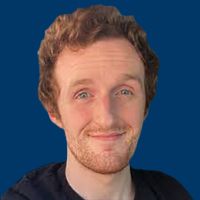Summer Research Program Offers First-Hand Experiences
The program brings both high-school and undergraduate students from underrepresented populations to the IU School of Medicine's Indianapolis campus. It offers students positive and meaningful firsthand exposure to biomedical and behavioral science careers that might not otherwise present themselves.
Harikrishna Nakshatri, BVSc, PhD
For the past four years, Amanuel Kibrom has been a research assistant at the University of Chicago. On June 11, he’ll graduate with a bachelor’s degree in biological sciences, and in the fall, he’ll attend Duke University to begin his doctoral work in biochemistry.
He’s no stranger to research, already possessing seven years of such experiences under his belt. He began to first dabble in research at age 15 while a high-school sophomore in Indianapolis Project SEED. While a junior and senior, he participated in the Summer Research Program at the Indiana University Melvin and Bren Simon Cancer Center.
In the Summer Research Program, he gained hands-on experiences in the lab of Marc Mendonca, Ph.D., associate professor of radiation oncology at the IU School of Medicine and a researcher at the IU Simon Cancer Center.
“We worked on developing a novel multi-prong treatment for the radiation resistant pancreatic cancer cells,” Kibrom explained. “Through this work, we were able to radio-sensitize the pancreatic cancer cells and induce programmed cell death.” Not bad for a teenager. Those early experiences benefitted Kibrom later.
“I really enjoyed the ability to engage with researchers in the field and learn first-hand about many unique and interesting developments in the field,” he said. “I learned a great deal about how to conduct research and the techniques associated with various experiments. The confidence to operate in the laboratory setting is something that later employers in the field of research noticed and appreciated, especially considering that undergraduates generally don't have that much research experience.”
Kibrom was one among a group of students who spent nine weeks participating in the program, which has been offered for more than a decade. Participants are selected based on their interests in biomedical or behavioral science, their grades, and personal interviews. Typically, only 5 percent of applicants are admitted into the program.
The program brings both high-school and undergraduate students from underrepresented populations to the IU School of Medicine’s Indianapolis campus. It offers students positive and meaningful firsthand exposure to biomedical and behavioral science careers that might not otherwise present themselves.
Overall, the program’s objectives are for participants to successfully graduate with a baccalaureate degree, aspire to a post-baccalaureate education, and apply to a program leading to a career in cancer research.
Each student works full time, spending about 35 hours on both laboratory and library research and another five hours is devoted to lectures and seminars. Some also get the opportunity to work in the clinic.
By design, the program leads participants to interact with their peers as well as clinical and post-doctoral fellows, faculty, and other mentors who are pursuing careers in biomedical research. Overall, by identifying and nurturing traditionally underrepresented students that have potential for success in the biomedical research field, the program can promote the students’ advancement. Also, by providing mentoring, guidance, and further research exposure, faculty mentors can guide qualified candidates into biomedical and behavioral science career paths.
Not all of the learning happens in labs, though. A lecture series, workshops, field trips, and other planned activities also are offered throughout the nine weeks. The program ends with poster and oral presentation sessions.
Much of the same experiences happen in the Future Scientist Program.
This six-week program is only for high-school juniors at Indianapolis Public Schools with a keen interest in science and the ability to work independently and responsibly. The American Cancer Society and the IU Simon Cancer Center first administered the program together for two years before the cancer center sponsored it alone for another two years. This year’s program is currently underway in collaboration with Indianapolis Project SEED.
The Summer Research Program and the Future Scientist Program enable the IU Simon Cancer Center to help create a pipeline of next-generation scientists, especially those from underrepresented populations.
Finally, a third summer program is new at the IU Simon Cancer Center. CUPID (Cancer in the Under-Privileged, Indigent, or Disadvantaged) Summer Translational Research Program provides an intensive, structured, laboratory-based research experience to U.S. medical students who have completed their first year of training, demonstrated a commitment to caring for underserved populations, and are beginning to explore careers in oncology.
CUPID students complete a series of half-day rotations on medical, surgical, and pediatric and radiation oncology services and at a community outreach center to experience inpatient, outpatient, and community-based clinical oncology practice.
Richard Zellars, M.D., chairman of the Department of Radiation Oncology at the IU School of Medicine and a researcher at the IU Simon Cancer Center, successfully began the program at Johns Hopkins University School of Medicine when he was on faculty there. This year, the program is underway at both Johns Hopkins and the IU Simon Cancer Center.
Together these three summer programs will expose students to many meaningful and enriching opportunities. Perhaps one or several of these students will one day be solving the mysteries of cancer in a lab or caring for a person at the bedside.
Harikrishna Nakshatri, B.V.Sc., Ph.D.
Marian J. Morrison Professor in Breast Cancer Research
Professor of Surgery and of Biochemistry and Molecular Biology
IU School of Medicine
Associate Director for Education
IU Simon Cancer Center



